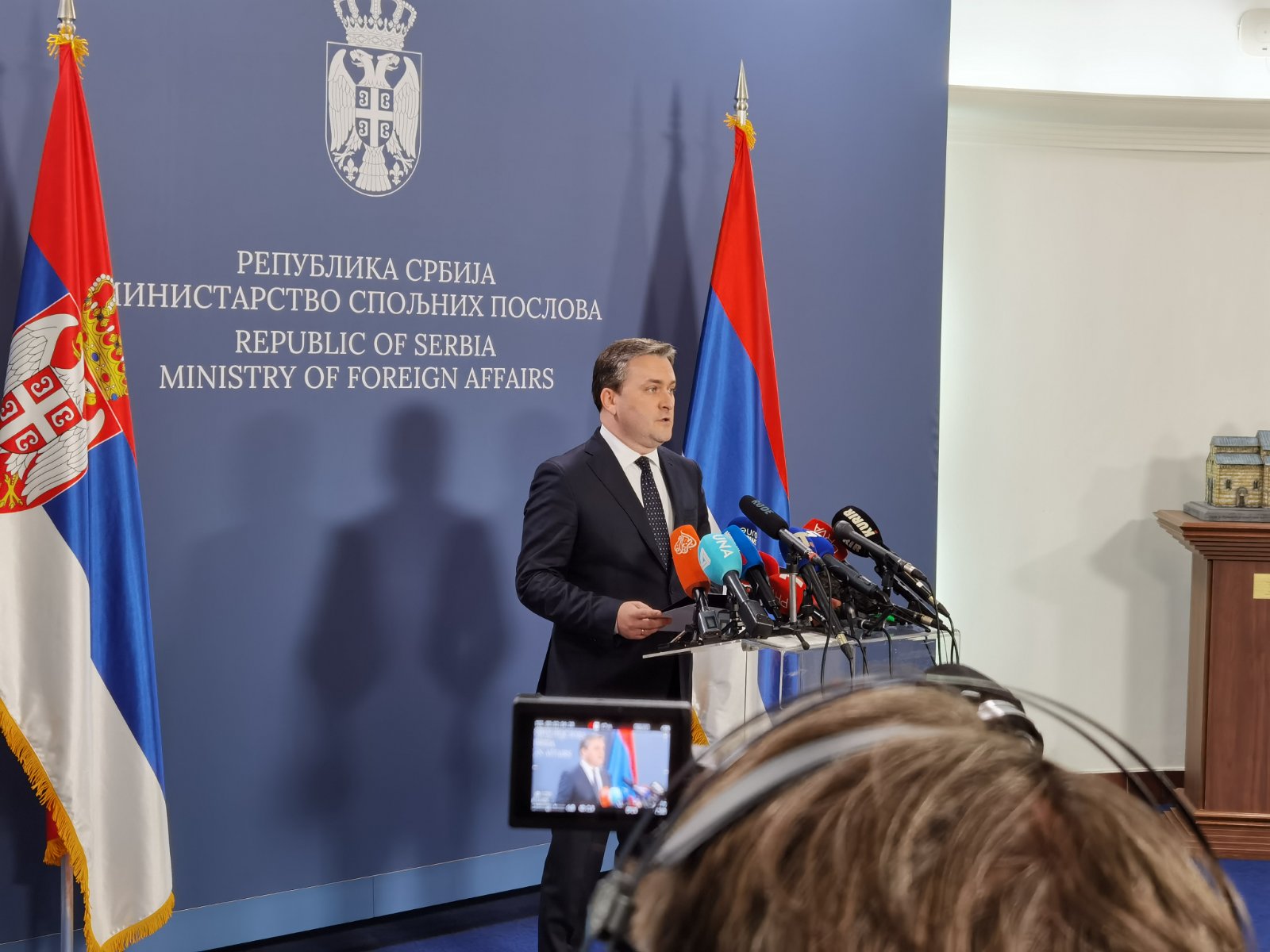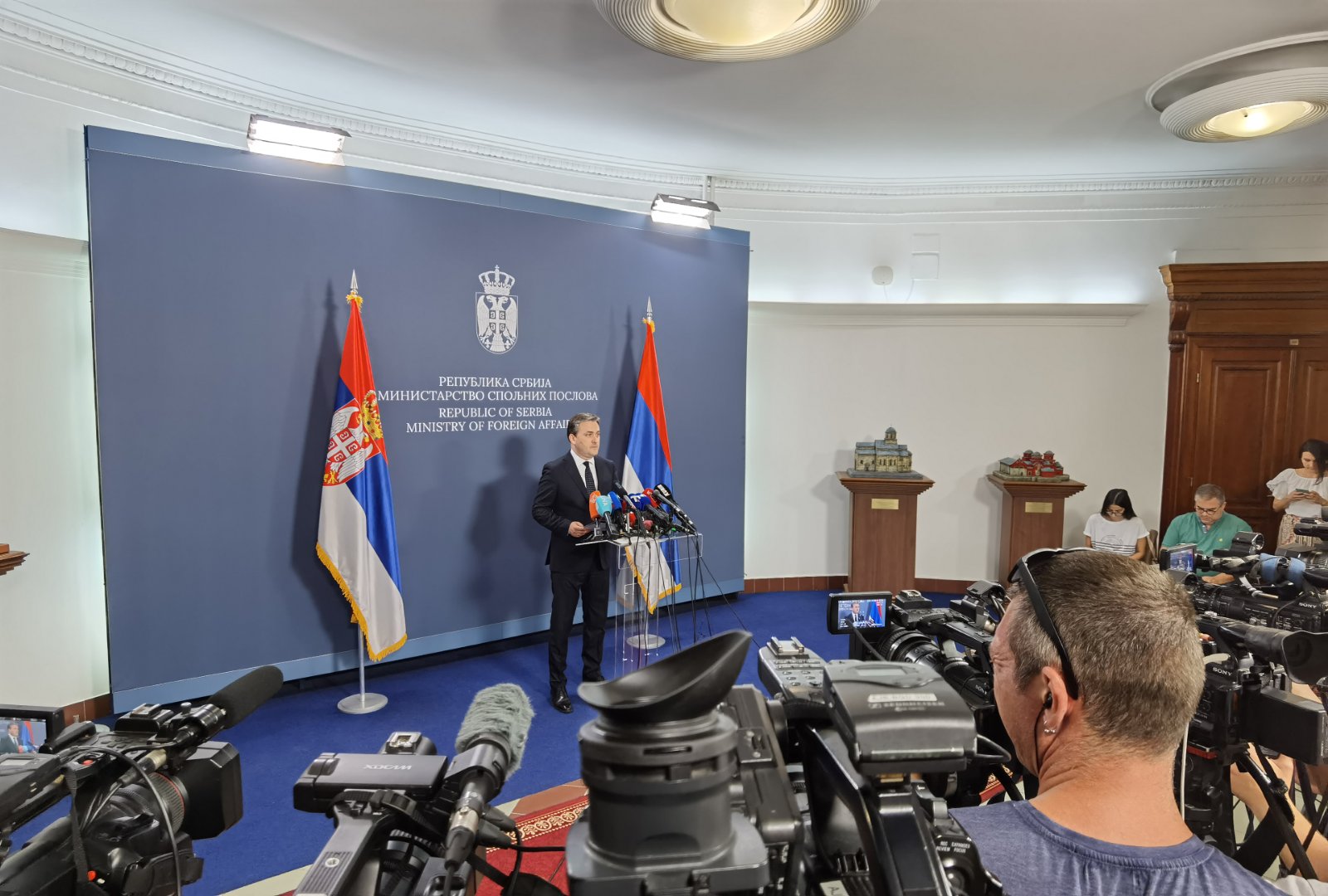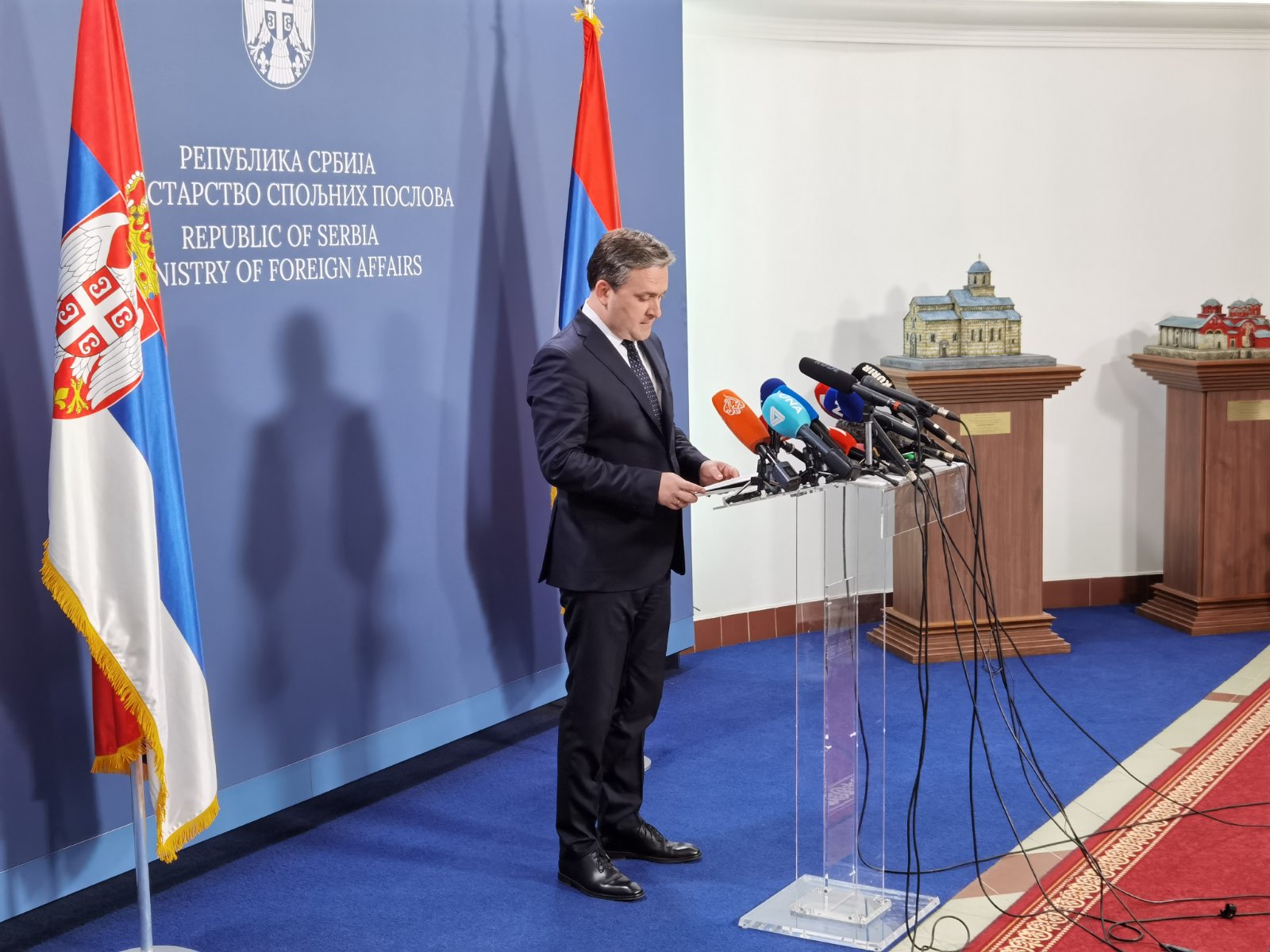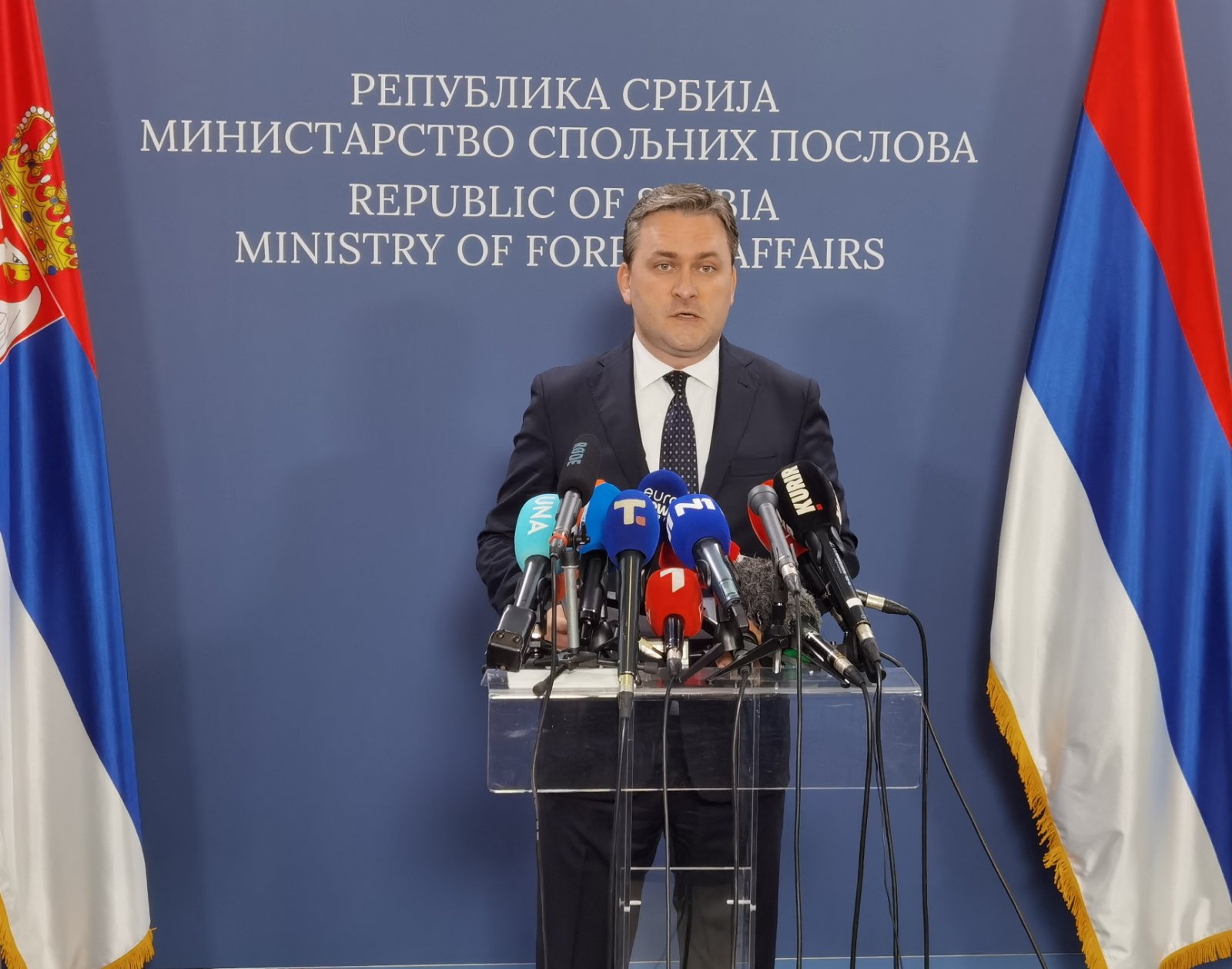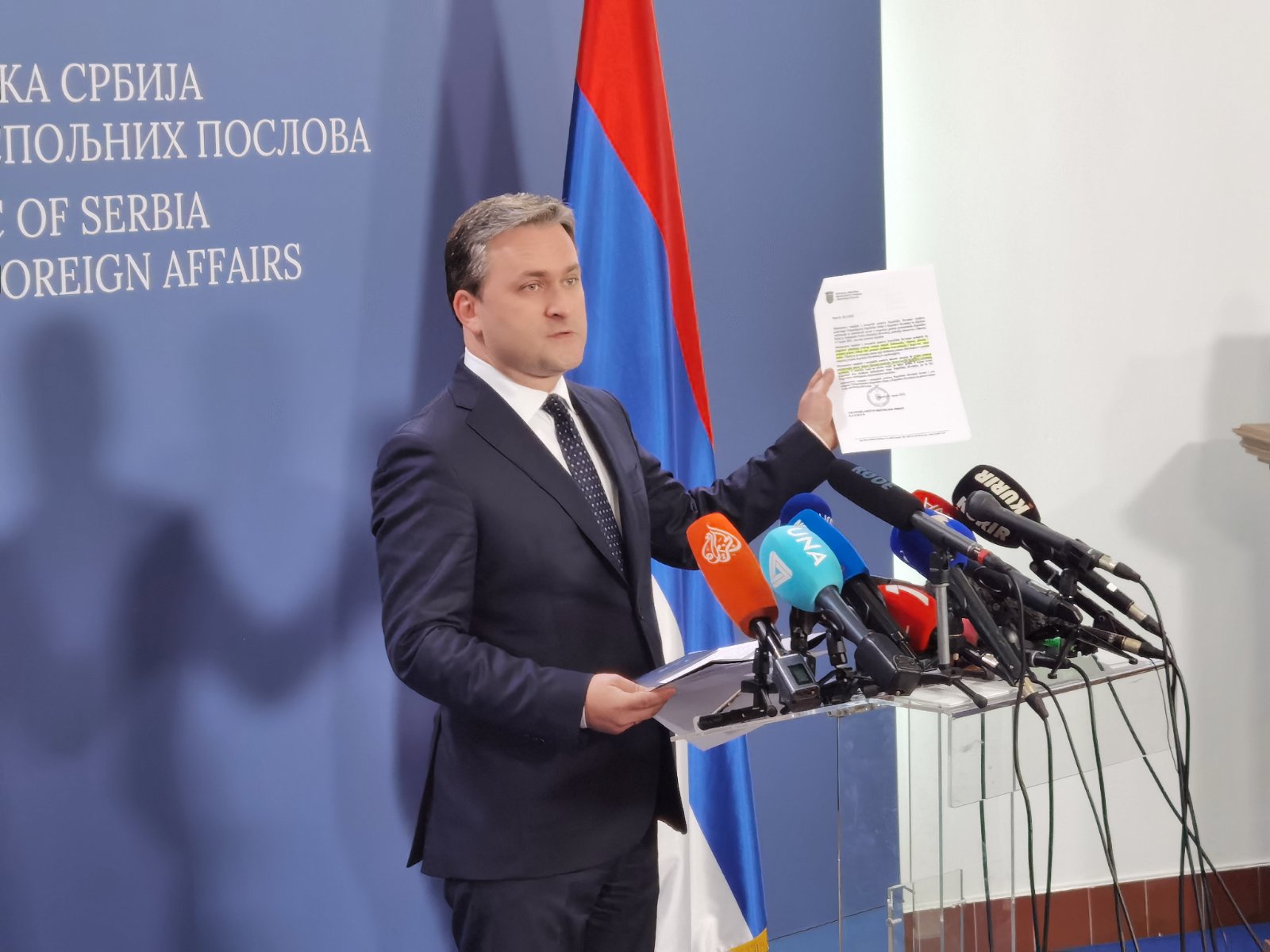Selaković: Croatia's decision is intimidating and outrageous
He stated that Serbia sent a diplomatic note to the Embassy of Croatia in Serbia, which the chargé d'affaires refused to receive today.
He also announced that the Government of Serbia would decide on appropriate countermeasures.
“The Government of Serbia will take a decision on the countermeasures that will be introduced, which will be based on the generally accepted rules of international public law,” emphasised Selaković at the press conference.
Selaković read a note from the Croatian Ministry, which was delivered to the Embassy of Serbia in Zagreb on 15 July, stating that, due to information from unofficial sources about the possible visit of President of Serbia Aleksandar Vučić to the area of Jasenovac and Pakrac on 17 July, in planning of any visit by foreign officials the time, nature and programme of the visit should be subject to official communication and agreement by both sides.
“The fact that the Croatian side was not officially informed about the intention of a possible visit to the Republic of Croatia is unacceptable to us”, it was stated in the note of the Croatian Ministry.
It also pointed out that any visit of a high foreign official to the Jasenovac memorial site cannot be of private nature.
"When the conditions are met for such a visit, about which the Croatian authorities have not been officially informed this time, it will be agreed through the usual diplomatic channels,” the note reads.
The Ministry of Foreign Affairs of Serbia responded to the note with a note presented to the chargé d'affaires at the Croatian Embassy in Belgrade at 10 o'clock this morning, which she refused to receive.
Selaković also read a note from the Serbian Ministry:
“The Ministry of Foreign Affairs of the Republic of Serbia is shocked by the illegal, anti-European and anti-civilizational decision of the Ministry of Foreign and European Affairs of the Republic of Croatia which, based on the arbitrarily expressed will of the Croatian authorities and grossly violating the principle of freedom of movement, prohibits the visit of the President of the Republic of Serbia to Jasenovac, to the place of suffering of hundreds of thousands of innocent victims of Serbian, Jewish, Roma and other nationalities”.
It is stated that the intention of Serbian President Aleksandar Vučić was only to lay flowers and light a candle at the holy place where hundreds of thousands of Serbs were killed during World War II.
Regarding the allegations from the Croatian note that the visit was unacceptable because the Croatian authorities have not been officially informed about the visit, the Ministry of the Interior of Serbia informed that the President of Serbia was interested in making an official visit to the Jasenovac memorial area at any time in the period until 17 September.
“In the deep conviction that the Republic of Croatia, like the Republic of Serbia, most strongly condemns and abhors the most disgusting crimes committed against the Serbian people by the Nazi Independent State of Croatia during the entire period of its existence, the culmination of which was the Jasenovac concentration camp system, the Ministry of Foreign Affairs of the Republic of Serbia expects the smooth visit of the President of the Republic of Serbia to this holy place, and in this sense, expects the Croatian side to provide appropriate treatment for the occasion, which refers to the highest foreign officials, including all necessary security aspects,” the note reads.
The Ministry of Foreign Affairs also noted that in the previous year, over 700 entries of Croatian diplomatic and official passport holders into Serbia were recorded, without any previous official announcements, including high-ranking Croatian officials, such as Minister of Science and Education Radovan Fuks on 24 June, Zvonko Milas, State Secretary of the Office for Croats outside the Republic of Croatia on 18 March, Milan Bošnjak, envoy of the Prime Minister of Croatia on 17 December 2021.
In this sense, the Ministry of Foreign Affairs of the Republic of Serbia reserves the right to adequately respond to the decision of the Croatian side.
“The truly incredible thing for me as a citizen and as a Serb is that someone sees chaos in the laying of flowers on the site of the largest execution grounds of the Serbian people in history. Imagine the chaos created by laying flowers on the site of the largest execution grounds of the Serbian people in history,” Selaković pointed out.
Perhaps, he added, the chaos lies in the fact that the President of Serbia would lay flowers decorated with a red-blue-white ribbon, and not with the Croatian arrangement of colours on the tricolour flag.
“Nevertheless, the overwhelming majority of victims there were of Serbian nationality,” Selaković said.
He also pointed out that he fully agreed with the assessment of Prime Minister Ana Brnabić, who said that it would be equal to a decision to forbid the President of Israel from going to Auschwitz.
Selaković added that the President of Serbia would present more details about this case in his address to the public tomorrow.

